Poverty in Egypt: How the turbulence of the Arab Spring revolution has led the country to economic ruin
Intended to manage the economic fallout, the policies of President Abdel Fateh el Sisi have done little to improve the lives of ordinary Egyptians
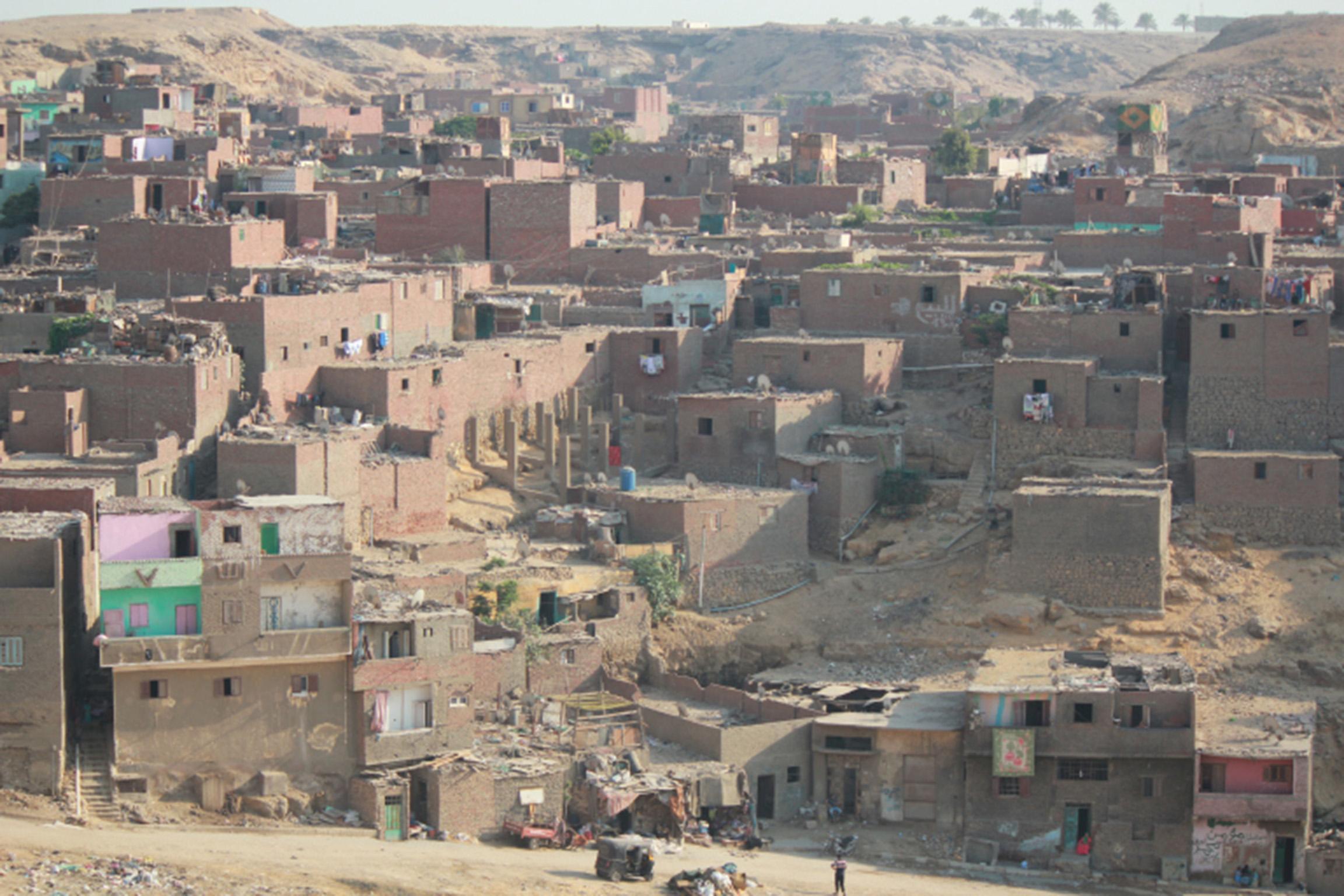
Your support helps us to tell the story
From reproductive rights to climate change to Big Tech, The Independent is on the ground when the story is developing. Whether it's investigating the financials of Elon Musk's pro-Trump PAC or producing our latest documentary, 'The A Word', which shines a light on the American women fighting for reproductive rights, we know how important it is to parse out the facts from the messaging.
At such a critical moment in US history, we need reporters on the ground. Your donation allows us to keep sending journalists to speak to both sides of the story.
The Independent is trusted by Americans across the entire political spectrum. And unlike many other quality news outlets, we choose not to lock Americans out of our reporting and analysis with paywalls. We believe quality journalism should be available to everyone, paid for by those who can afford it.
Your support makes all the difference.With his hands blackened from work, wearing a baggy T-shirt stained with motor oil, 40-year-old Said Eid stands among the bits of scrap metal from which he scrapes together a living of 600 Egyptian pounds (£24) a month. In his open-air workshop, high on the eastern hills of a slum neighbourhood of Cairo, the father-of-four says with a sigh: “Life is a lot more difficult than it used to be.”
For more than a decade, he’s kept food on the family dinner table by collecting and selling old bits of copper, but in the past couple of years, the prices of food, fuel and rent, have soared, while his income has stayed roughly the same. He’s one of many Egyptians who now find themselves teetering on the brink of poverty.
Massive inflation and a sharp drop in tourism since the 2011 revolution have ushered in a period of austerity in Egypt. Encouraged by the International Monetary Fund, President Abdel Fateh el Sisi’s administration has cut the subsidies for food and fuel that many Egyptians depend on.
In 2016, Egypt’s central bank unpegged the Egyptian pound from the dollar, which plummeted overnight to less than half its previous value, resulting in surging costs of imports on which the country relies. While the number of those living in poverty on the continent has declined since 1990 – and global rates of poverty have more than halved – Unicef reported last December that since 2000 the number of Egyptians living in poverty has nearly doubled.
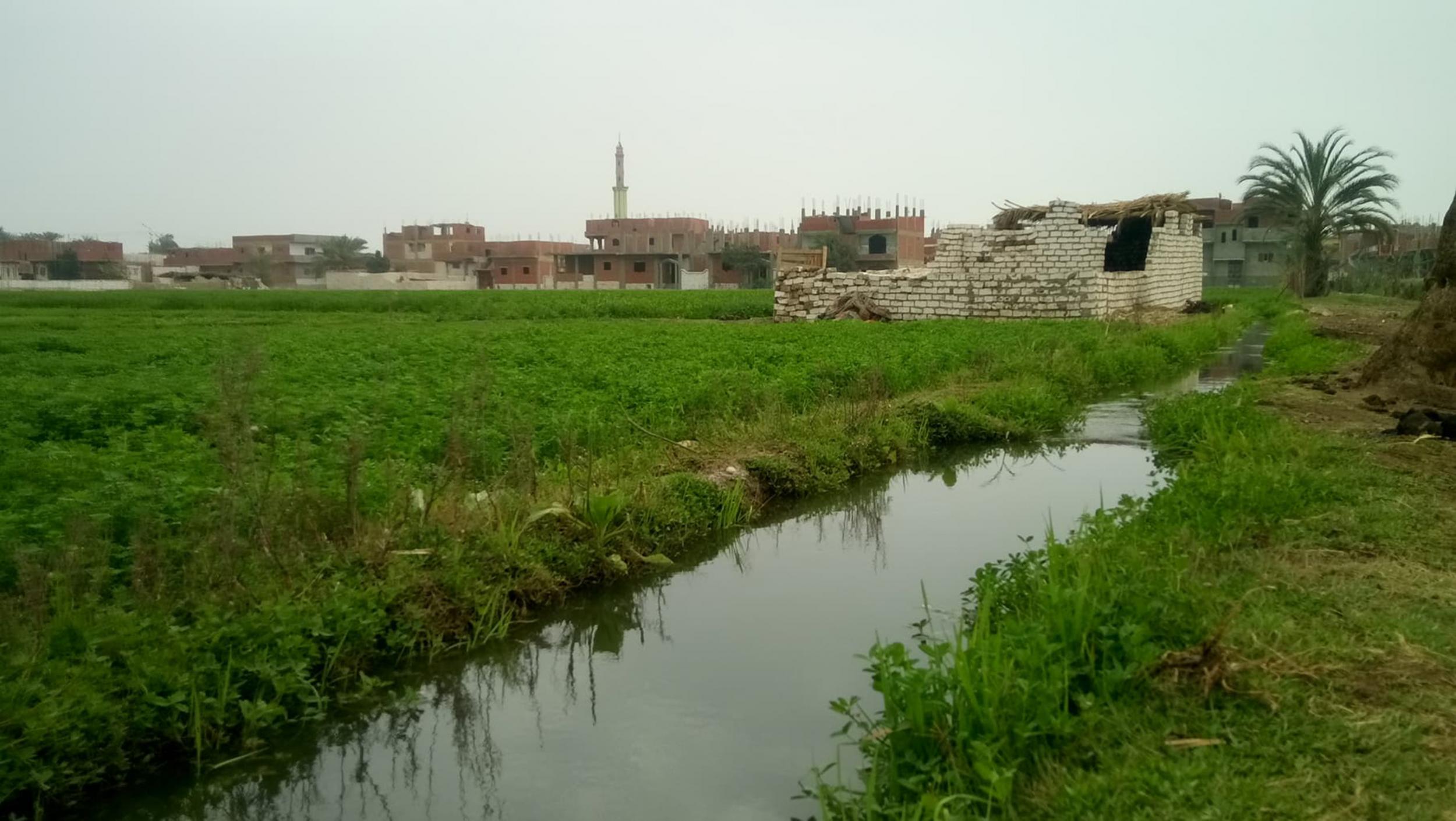
Egypt has been on the economic rocks ever since the Arab Spring revolution. The instability that followed the protests that brought down the President of 30 years, Hosni Mubarak, frightened away foreign business, not to mention tourists, which once brought a steady flow of foreign currency into the country. Arguably necessary to manage the crisis, the policies of the current President have done little to improve the lives of everyday Egyptians. Under Sisi, the country has been subjected to four years of austerity, while simultaneously pouring money into dubious mega-projects, such as the expansion of the Suez Canal, and the creation of a new capital city way out in the rocky desert east of Cairo.
As a result, poor Egyptians such as Eid are further tightening their belts. Originally from the countryside, Eid’s made a second home in Al Doweqa, an area within the slum settlement of Manshiyat Naser, a sprawling 5sq-km district of informally built red-brick tower blocks. With well over a quarter of a million inhabitants, the area has become synonymous with the struggles of Egypt’s urban poor.
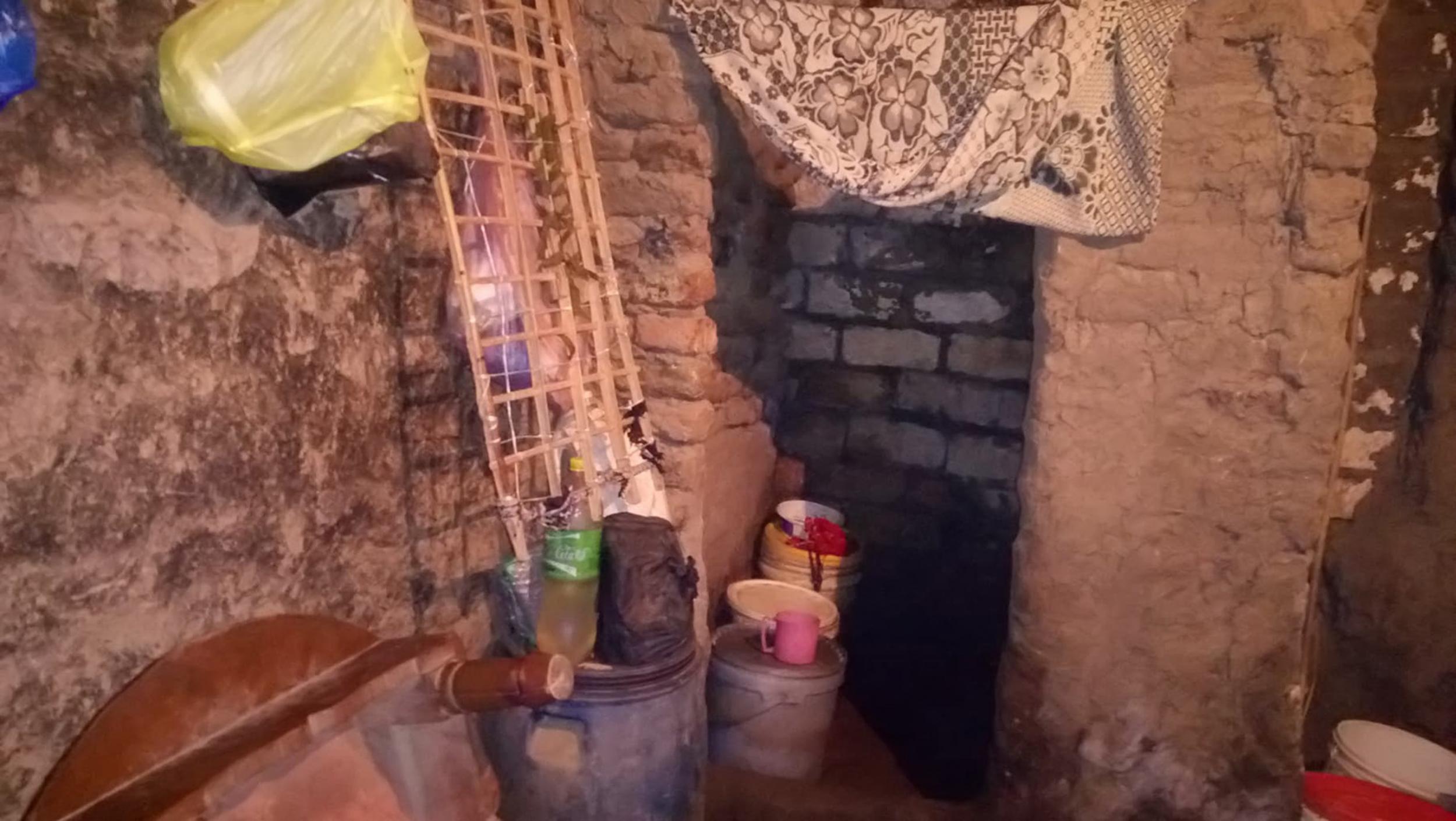
Built on and below a treacherous cliff edge, many of Al Doweqa’s tumbledown dwellings are inadequately built, and collapses are commonplace. As Eid hauls copper pipes into an open-back truck to take away to sell, just up the road, his neighbour, 43-year-old Afar Hussein Ahmed, watches as her two sons clear away the bricks that used to be her home. “I was just at my work in the marketplace,” she says, “and when I came back, my house was gone.” The brick shack with tarpaulin roof, which less than a day ago she called home, was just a room with a bed, a small area for preparing food, and a couple of boxes for her clothes. Her voice cracking, she casts a hand over the rubble burying the bed she rose from just hours before the collapse. “God knows where I’ll sleep tonight,” she says.
Such stories are common in this community. The slum gained national notoriety back in 2008 when a rockslide took out the main street, killing more than 100 people. Since then a government-sponsored rehousing scheme has begun relocating residents to a purpose built compound a few miles away. Ahmed and her neighbours wait and pray for their turn. For most of them, it’s their only way off the cliff edge. They live hand to mouth as it is, she says, and, with the current cost of living so high, there’s no way widows like her can possibly save up the money to move.
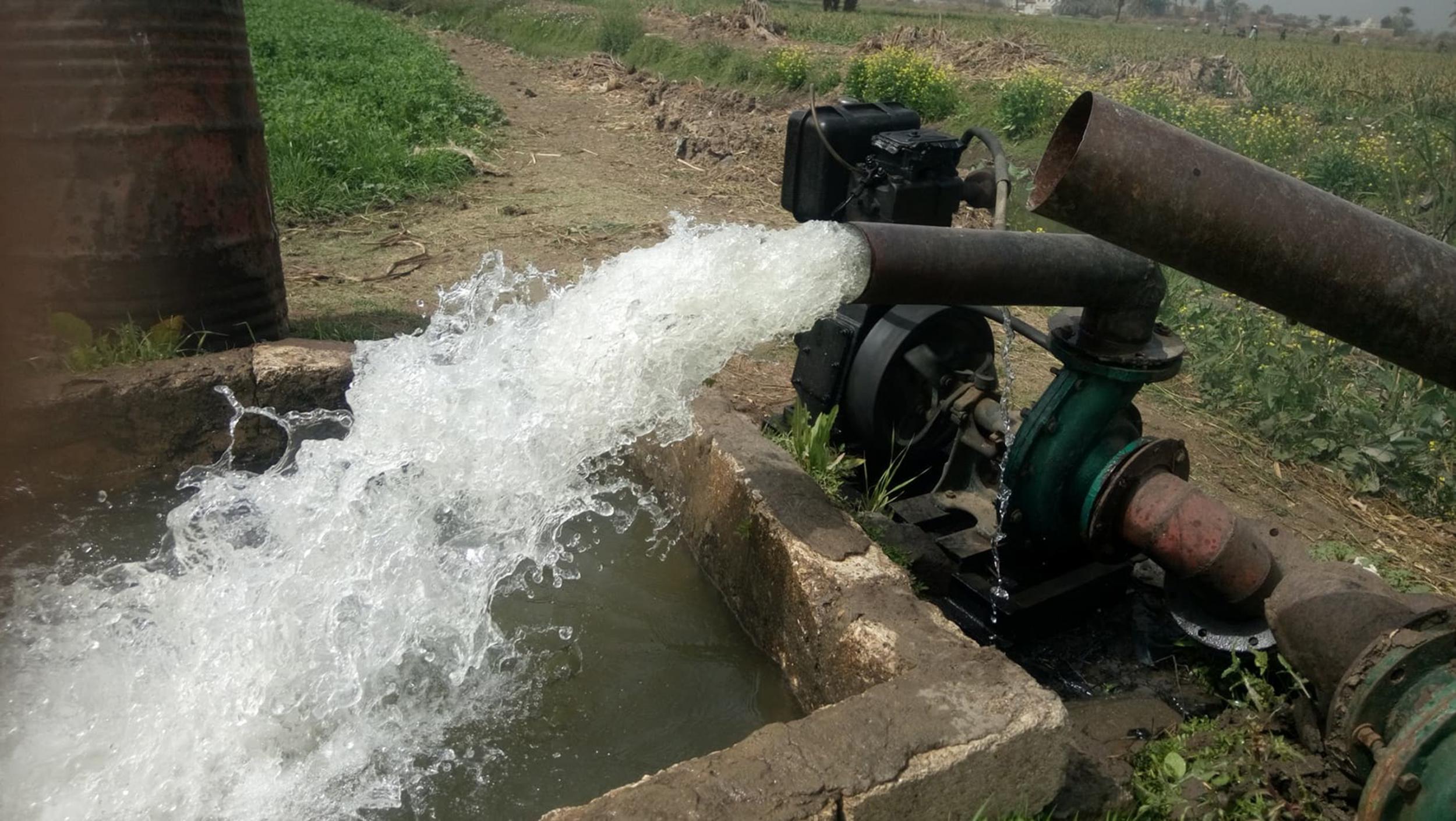
The increase of prices across the country has meant that Egyptians who were once just about getting by are now slipping deeper into poverty. A local charity, the Egyptian Food Bank, says they’ve seen a massive upsurge in people now in need of their help to feed their families. “The price of almost everything has increased, surpassing people’s income,” says Moez el Shohdi, chief executive of the charity. “The number of people who come to us increases every year.” The charity says it currently helps around 450,000 families keep food on the table, all through private donations, but their resources are now having to be spread between the growing number of those in need.
The government also offers some support. In addition to the rehousing scheme for Al Doweqa residents, the takaful (solidarity) and karama (dignity) programmes offer direct monetary assistance to Egypt’s poorest. Eid, for example, receives an extra 600 pounds a month to help support his family.
But it’s in rural communities, like in Eid’s native village near the Fayoum oasis, where poverty is highest, and where government assistance is harder to come by. According to Hala Abu Khatwa of Unicef, four out of five “multidimensionally poor children” in Egypt live in the countryside. Despite his meagre pay, Eid’s copper enterprise is just enough to keep his family afloat. Outside the country’s urban centres, however, such opportunities are thin on the ground.
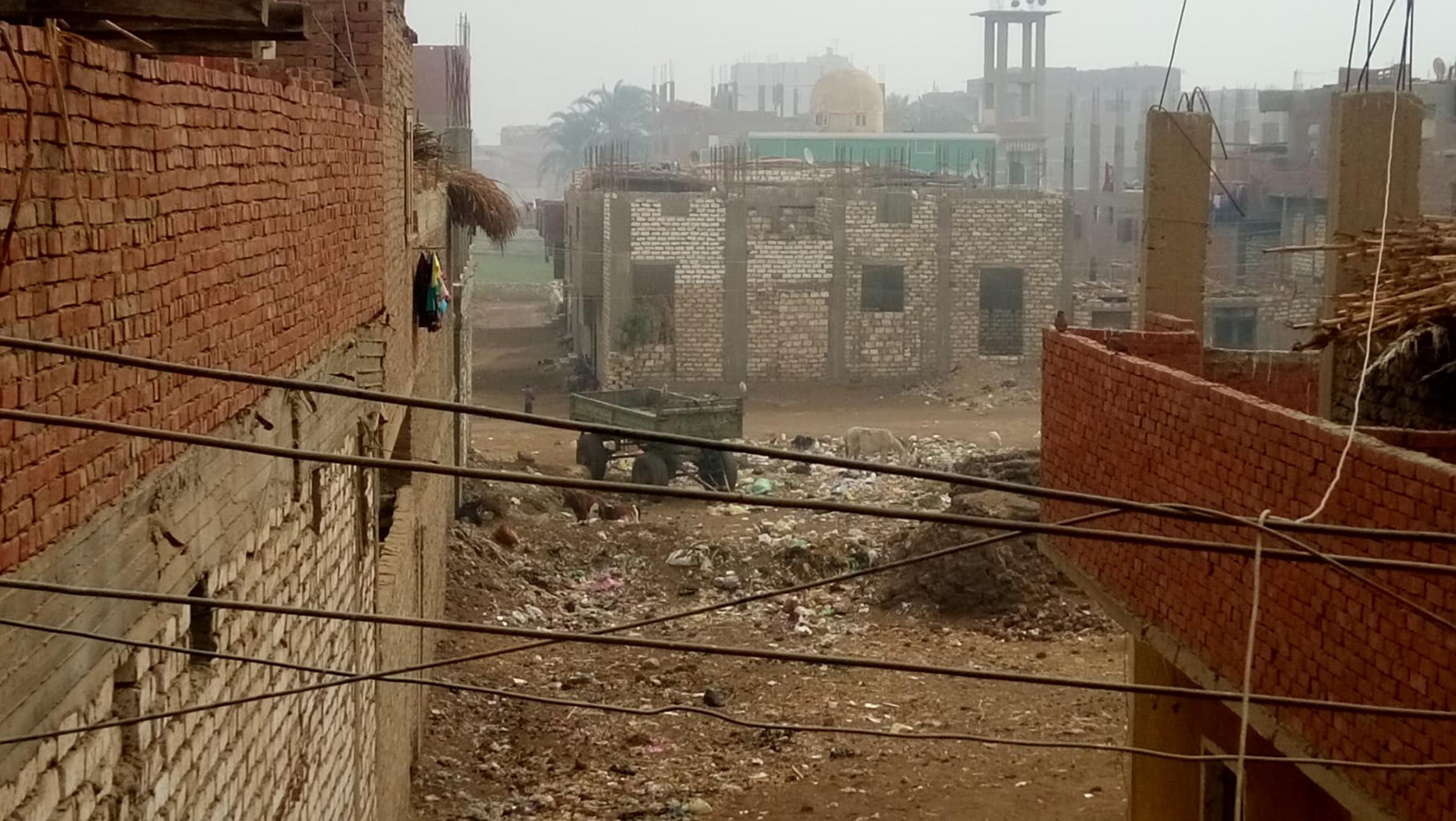
In the village of Al Basqalon in Minya, Upper Egypt, the countries economic woes are more keenly felt. A 2013 study puts the number of “chronically poor” people in Upper Egypt at 30 per cent, and the Minya governorate has around a third of the country’s poorest villages.
Al Basqalon isn’t one of them. It’s a fairly typical village of 5,000 people with a high school, a newly opened football pitch, and a small hospital open 10 hours a day. The land is green here, and the air is fresh, 165 miles south of the Cairo smog that sticks in the sinuses of the capital’s 20 million inhabitants. There’s no air pollution in Al Basqalon; nothing to indicate any sort of industry at all. Like the other villages that surround it, it depends entirely on farming, aside from which, there’s no work.
“There are no opportunities here,” says Ragb Abdel Halim, the manager of a local charity that provides support to Al Basqalon’s poorest residents. “There’s nothing at all. Most of the men end up going to Saudi Arabia for work.”
Throughout the tiny village, old women sit on doorsteps gossiping, while children play in the unpaved streets. There are few young men here. Nearly all have left to find work elsewhere in Cairo or abroad in the Gulf states. One man in his twenties has just sent back word that he’s made it to the UK, after risking his life sneaking into Libya, crossing the Mediterranean in a rickety boat, and finally smuggling himself into a lorry bound for England.
For those left in the village, there’s nothing but sporadic farm work, labouring for big landowners for as little as 50 pounds (£2) a day. One such worker is Ibrahim Syed Ahmed, who, at 70, is too old to jump ship for Saudi Arabia. He shares a run-down two-room shack with his wife and 14-year-old son. He should be retired, he says, “but what can I do?”
These days, he says, even this low-paid field work is hard to come by. In the past few years, landowners have had to cut back on labour costs, leaving occasional workers like Ahmed competing for positions and his wife forced to chip in, cleaning and washing clothes for as little as 20 pounds (80p) a day. To subsidise their living, they receive help from the government, although he gives sardonic smile when he says how much: 40 pounds (£1.60) a month.
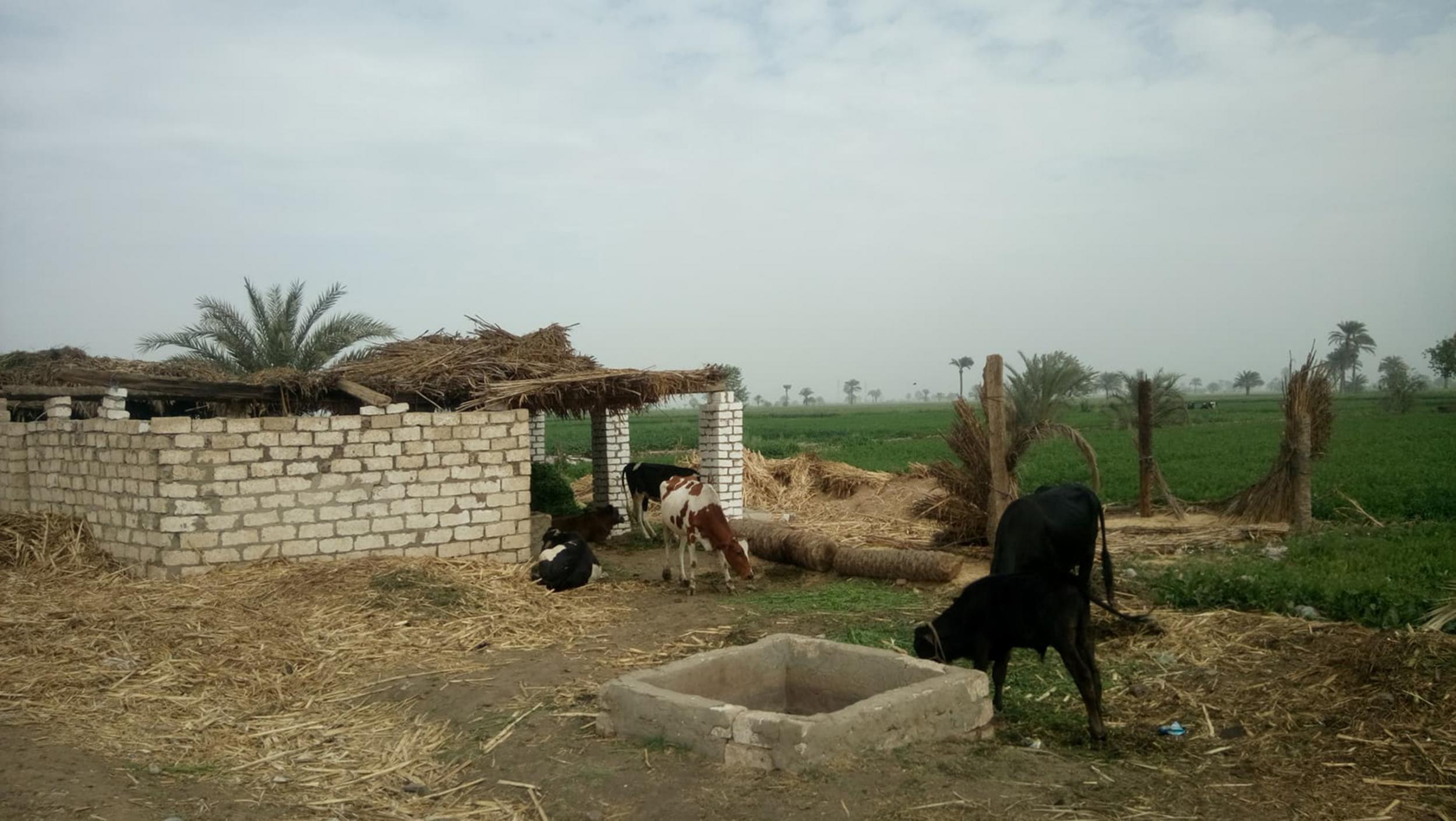
Even those who own land might struggle to make ends meet. Mohamed Reyb, a stocky 40-year-old farmer, used to make a decent living growing cotton. Egyptian cotton has long enjoyed a luxury status around the world, and once provided farmers like Reyb with a steady income. But with increased competition from US farmers, and a decision by the Sisi administration to cut subsidies for growers in 2015, many have abandoned cotton altogether. “You can’t make a profit anymore,” says Rejb, looking out over his land, which he now uses to grow onions.
In addition to rising prices for fuel and fertiliser, Rejb also faces a dwindling of his primary resource: water. Relying almost exclusively on the Nile for its supply, this single resource is being stretched to the maximum to secure the water needs of an ever-growing population. At the start of the millennium, Egypt’s population numbered 70 million. In just 17 years, it’s risen to around 100 million, and is estimated to hit 120 million by 2030. Since 2015, the country has officially been in a state of water poverty. For Rejb, what was once a bountiful resource has become a tenuous commodity. Some days, he says, his supply is cut off completely. “If I can’t get water then my crops will die,” he says.
He points to cluster of red-brick buildings off in the distance. “See those houses?” he says. “That all used to be farmland. Since there’s no longer any money in farming, farmers have started selling off their land.” Around 30,000 acres of farmland are lost each year to largely illegally built settlements. As more of the land that was once the breadbasket of the Roman empire disappears under bricks and mortar, the country is forced to import more of its food from abroad, putting yet more strain on the economy.
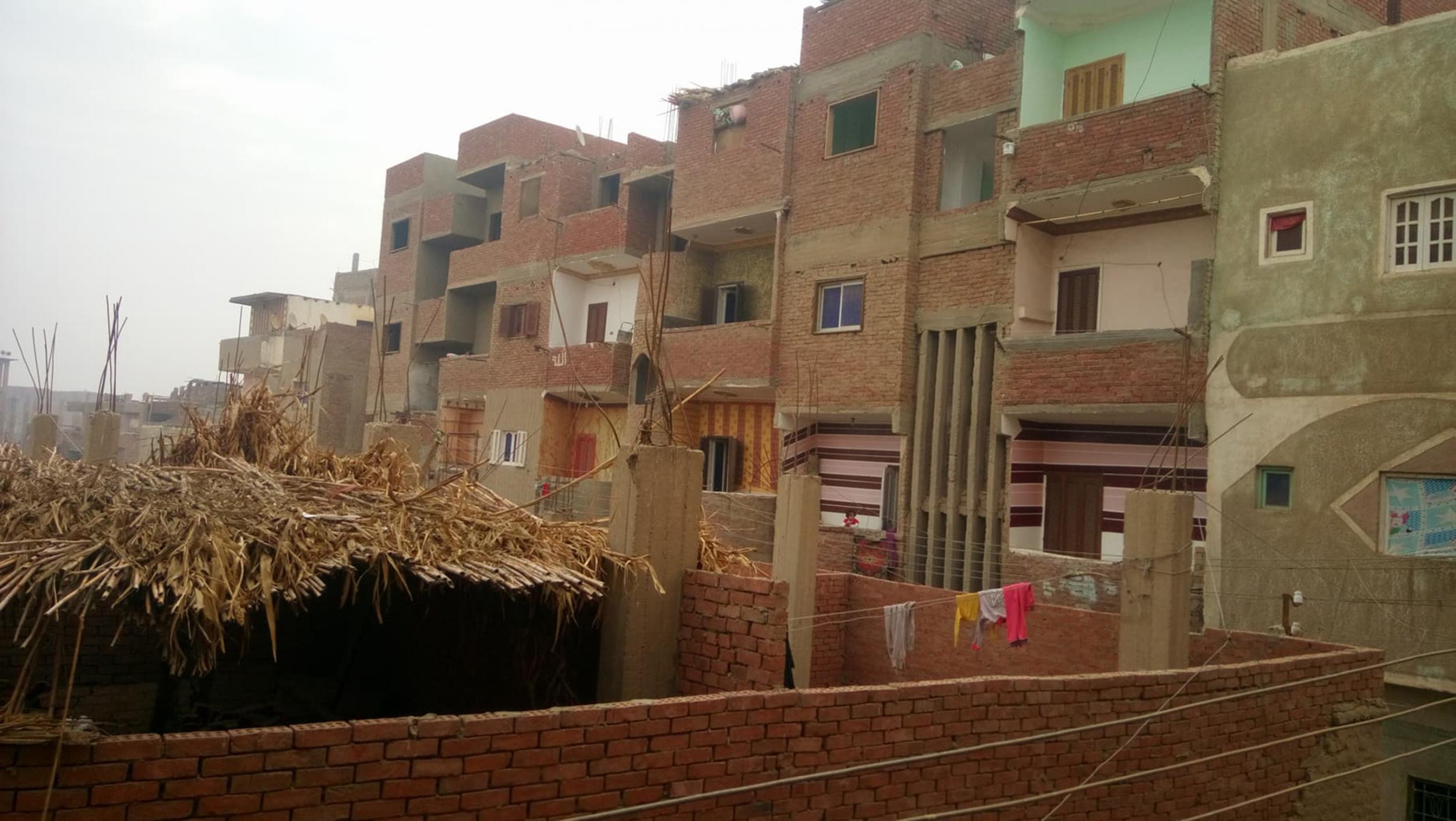
Despite a laundry list of economic woes, Sisi will seek re-election as President next month with seemingly no chance of losing. All credible opposition has been swept aside; some have ended up in jail. His only opponent, Moussa Mostafa Moussa, is a textbook patsy. After appearing out of total obscurity this month to announce his candidacy, people on social media began sharing screenshots of his Facebook account, which was inundated with photos of his supposed rival and incumbent President. Many Egyptians are refusing to call it an election, opting instead to label it a “referendum” with only one possible outcome.
Yet the President retains real support, surprisingly, even among those struggling to survive in the current climate. Eid, the copper worker from Cairo, is one of those who still has faith in the administration. “Things have got more difficult since the revolution, and under the current President, but I still agree with what the government is doing,” he says. “It’s like if you have a factory destroyed, it takes time to rebuild it. But when it’s all finished, then you can get back to work.”
Join our commenting forum
Join thought-provoking conversations, follow other Independent readers and see their replies
Comments